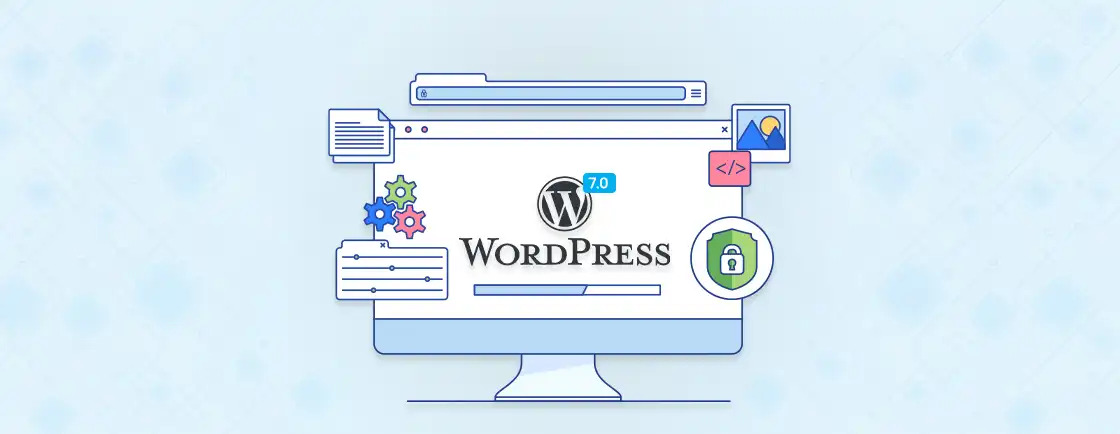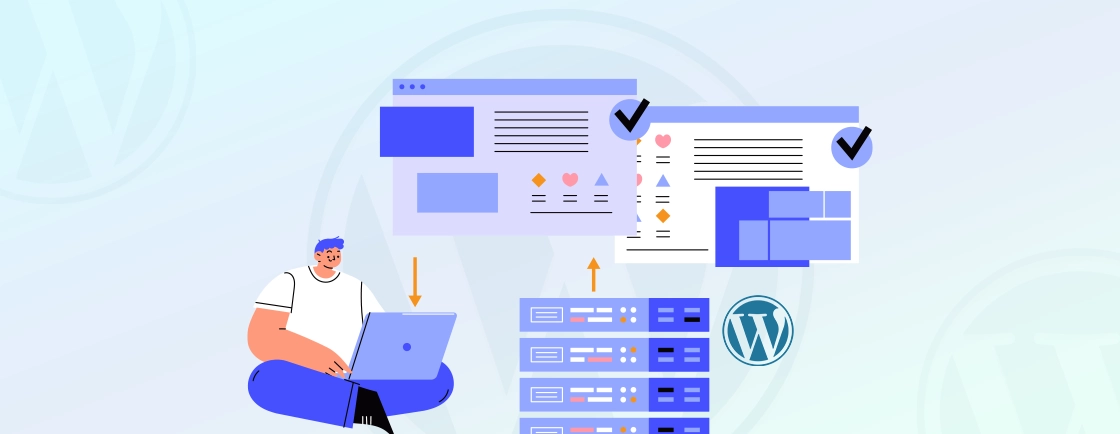Table of Contents
When you think about a WordPress website, one of the primary reasons behind its creation is getting as many users to your business. But with users come their critical data and information, which you need to keep safe and secure. Otherwise, the users won’t be able to trust your website and offerings.
To that end, WordPress developers use cookies and PHP sessions together to store and maintain user data. While a cookie is a small piece of data sent from a website and stored on the user’s computer or mobile device, PHP sessions are server-side storage mechanisms that maintain user data across multiple page requests.
I’ll tell you more about these WordPress cookies and PHP sessions, how they work, why they are important, and how to use them. There are so many topics to discuss. So, let’s begin.
What are WordPress Cookies and PHP Sessions?
WordPress cookies and PHP sessions are vital elements for the proper functioning of a website and for enhancing user experience.
WordPress cookies are small pieces of data that are stored on the user’s browser to help the website remember important information. They are used to track user preferences, provide personalized content, and improve website performance. These cookies can remember login details, language preferences, and even the contents of a shopping cart.
On the other hand, PHP sessions are a way to store and manage user-specific information on the server. They allow the website to keep track of user activity and maintain continuity between different page requests. These sessions are particularly useful for login systems, as they can verify user credentials and keep users logged in throughout their browsing sessions.
In summary, WordPress cookies and PHP sessions are crucial for enhancing website functionality, improving user experience, and maintaining user-specific information.
How do WordPress Cookies and PHP Sessions Work?
WordPress cookies and PHP sessions work together to maintain user data and provide a personalized experience. It allows the website to recognize your device and preferences (such as language settings) over a period of time. So you don’t have to keep re-entering them whenever you come back to the site or browse from one page to another.
WordPress Cookies
- Upon visiting a WordPress site, a cookie is generated and stored on the user’s browser.
- This cookie contains important information such as user preferences, login status, and session data.
- WordPress cookies enhance user experience by remembering their preferences and allowing seamless navigation.
- These cookies are essential for various WordPress features, including user authentication and tracking.
PHP Sessions
- PHP sessions are server-side mechanisms that enable the storage and access of user data throughout their browsing session.
- When a user visits a website, a unique session ID is generated and stored on the server.
- This session ID is then passed to the user’s browser through a cookie or URL parameter.
- PHP sessions allow the server to associate user data, such as login credentials or shopping cart items, with the correct session ID.
Cookies and PHP sessions in PHP websites work together to provide a seamless and personalized user experience. Cookies allow WordPress to identify and recognize users, while PHP sessions maintain and track user data across multiple page requests.
Why are WordPress Cookies and PHP Sessions Important?
WordPress cookies and PHP sessions are crucial for managing user data and providing a seamless and personalized experience on WordPress websites. They play a pivotal role in various aspects of user interaction, from authentication and personalization to shopping cart functionality and user activity tracking.
User Authentication and Session Management
Cookies and PHP sessions work together to enable user authentication and maintain user sessions. When a user logs in to a WordPress site, a cookie is created to store their login credentials. This cookie allows the user to remain logged in even if they close their browser and return to the site later.
PHP sessions, on the other hand, maintain user data across multiple page requests. They ensure that users don’t have to re-enter their information every time they visit a new page. Using proper WordPress GDPR compliance and CCPA compliance for WordPress practices helps ensure that user session data is handled securely and legally.
Personalized User Experience
Cookies and PHP sessions enable WordPress websites to provide personalized user experiences. Cookies can store user preferences, such as language settings, theme choices, and newsletter subscriptions. This information allows the website to tailor its content and presentation to each user’s individual needs and interests.
Shopping Cart Functionality
PHP sessions play a vital role in managing shopping carts on WordPress e-commerce sites. They store the contents of the shopping cart, including items added, quantities, and any associated discounts or coupons. This ensures that users can continue their purchases even if they close their browser and return later.
User Activity Tracking and Analytics
Cookies and PHP sessions can be used to track user activity on WordPress websites. This data can be valuable for analyzing user behavior, identifying popular content, and improving the overall user experience. Additionally, it can aid in targeted advertising and marketing campaigns.
Enhanced Security and Scalability
PHP sessions offer enhanced security compared to cookies, as user data is stored on the server rather than the user’s device. This reduces the risk of data exposure or manipulation by malicious actors. Moreover, PHP sessions are scalable and can handle a large volume of users without performance bottlenecks.
How do WordPress Cookies and PHP Sessions Affect User Experience?
When it comes to user experience, cookies, and sessions play a crucial role in enhancing website functionality and personalization. Here are some ways cookies and sessions affect user experience:
- Remember user preferences: Cookies allow websites to remember user preferences, such as language selection or theme preferences, resulting in a customized experience for each user.
- Track user activity: Sessions help track user activity within a website, enabling features like remembering items in a shopping cart or allowing users to resume incomplete tasks.
- Personalize the content: Cookies and sessions enable websites to deliver personalized content based on user behavior and preferences, tailoring the user experience to their specific needs.
- Improve the login experience: Sessions keep users logged in during their browsing session, eliminating the need to repeatedly enter login credentials and enhancing convenience.
- Enhance the site performance: By storing certain data locally on the user’s browser, cookies and sessions reduce the need for constant communication between the website and server, resulting in faster page loading times.
WordPress cookies and PHP sessions facilitate seamless user login, enable personalized content, enhance shopping cart functionality, provide valuable insights, and enable targeted marketing. However, their use must be balanced with respect for user privacy and clear data management practices to maintain trust and ensure a positive user experience.
How do WordPress Cookies and PHP Sessions Help with Security?
Cookies and sessions play a crucial role in enhancing security measures on WordPress websites. They work together to safeguard user data, prevent unauthorized access, and protect against malicious attacks. Here are the steps to understand how these features contribute to website security:
- Authentication: Cookies and sessions securely store login credentials, making user authentication more secure.
- Session Management: Sessions generate a unique identifier for each user, preventing unauthorized access and session hijacking.
- Secure Transmission: Cookies and sessions can be configured to work over secure HTTPS connections, ensuring data is encrypted during transmission.
- Authorization: Sessions can store user roles and permissions, allowing access only to authorized areas of the website.
- Temporary Data Storage: Sessions provide a secure way to temporarily store sensitive data, such as shopping cart information or form submissions.
- Data Integrity: Cookies can be signed or encrypted to protect against tampering and ensure data integrity.
- Protection Against Cross-Site Scripting (XSS) Attacks: Properly configuring cookies and sessions can minimize the risk of XSS attacks.
- Protection Against Cross-Site Request Forgery (CSRF) Attacks: Sessions can generate and validate CSRF tokens to prevent forged requests.
By implementing these security measures and educating users about online safety practices, owners can safeguard user data and maintain a secure environment for their WordPress sites.
How to Use WordPress Cookies and PHP Sessions?
Using WordPress cookies and PHP sessions effectively involves understanding their roles and implementing them appropriately within your website’s code. Here’s a step-by-step guide to using WordPress cookies and PHP sessions:
- Understand the purpose: Familiarize yourself with the concept of cookies and sessions and how they are used to store and retrieve user data.
- Enable cookies in WordPress: In the WordPress dashboard, go to Settings > Privacy and check the box to enable cookies.
- Use plugins: Install and activate plugins like “GDPR Cookie Consent” or “Cookie Notice & Compliance for GDPR/CCPA” to comply with privacy regulations and display cookie consent banners.
- Implement PHP sessions: Utilize the session_start() function at the beginning of your PHP code to initiate a session and set session variables.
- Store and retrieve data: Use setcookie() to store data in cookies and $_SESSION to store and retrieve data in sessions.
- Secure data handling: Implement security measures such as data encryption and user authentication to protect sensitive data stored in cookies and sessions.
By following these guidelines, hire WordPress developers who can use cookies and PHP sessions to enhance user experience, improve website functionality, and maintain a secure online environment for your WordPress site.
How to Set and Retrieve Cookies in WordPress?
Setting and retrieving cookies in WordPress involves using PHP functions to manipulate cookie data. Here’s a step-by-step guide:
- Use the setcookie() function to set the cookie. Provide a name for the cookie, a value, an expiration time, and optional parameters like domain and secure flag.
- To retrieve the cookie value, use the $_COOKIE superglobal variable. Access the value using the cookie name as the key.
- Remember that cookies are stored on the user’s device, so you can only retrieve cookies that were previously set by your website.
- Ensure that you sanitize and validate any input used in the cookie to prevent security vulnerabilities.
- If you need to delete a cookie, use the setcookie() function with an expiration time in the past. This will prompt the browser to remove the cookie.
To set and retrieve cookies in WordPress themes, you can use PHP functions directly within the theme files.
However, it’s recommended to create a separate PHP file for handling cookies and include it in your theme’s functions.php file. That will help improve code organization and make it easier to manage cookies across different theme files. This process can be a little typical for those without the necessary technical expertise, and a WordPress website development company could be the answer for them.
How to Use PHP Sessions in WordPress?
PHP sessions are a fundamental aspect of user management in WordPress, enabling persistent data storage across multiple page requests. To effectively utilize PHP sessions in WordPress, follow these guidelines:
- Begin by opening the functions.php file in your WordPress theme.
- Add the following code to the file to initiate a session: session_start();.
- Next, use the $_SESSION superglobal to set session variables. For example, to set a variable named “username”, use: $_SESSION[‘username’] = ‘yourusername’;.
- You can retrieve the session variable in any other file or template by using $_SESSION[‘variablename’]. For instance, to retrieve the “username” variable, use: $username = $_SESSION[‘username’];.
- Remember to destroy the session when it is no longer needed. This can be done by calling session_destroy();.
Using PHP sessions in WordPress allows you to store and retrieve user-specific data across multiple pages or visits. That makes it useful for maintaining user login information, shopping cart details, or custom preferences.
Remember to handle session security carefully by implementing encryption and validation techniques to prevent session hijacking or tampering. Or you can get help from expert developers, as they have the skills and expertise to ensure WordPress security is maintained.
What are the Common Issues with WordPress Cookies and PHP Sessions?
WordPress cookies and PHP sessions are crucial elements for storing user information and maintaining their session on a website. However, there are common issues that can arise with these features.
- Expired Cookies: If the cookies are not properly set or have expired, users may experience login difficulties or lose their session data.
- Cross-Site Scripting (XSS) Attacks: Malicious individuals can exploit cookies to inject harmful scripts, compromising user data and website security.
- Session Hijacking: When PHP session IDs are not adequately protected, attackers can hijack sessions and gain unauthorized access to user accounts.
- Inconsistent Session Handling: Poorly configured session handling can result in frequent logouts or difficulties in accessing certain features for users.
To address these issues, it is crucial to regularly update WordPress and PHP versions, use secure and encrypted connections (HTTPS), implement strong authentication mechanisms, and sanitize user inputs to prevent XSS attacks. Additionally, utilizing plugins or libraries specifically designed for managing sessions and cookies can enhance security and reliability.
By taking these precautions and remaining vigilant, web experts can minimize the common issues associated with WordPress cookies and PHP sessions and provide a more secure and seamless user experience.
How to Troubleshoot Cookies and Sessions Errors in WordPress?
To troubleshoot cookies and session errors in WordPress, follow these steps:
- Check for plugin conflicts: Disable all plugins and see if the issue persists. If not, enable plugins one by one to identify the problematic ones.
- Clear cache and cookies: Clear your browser cache and cookies, as outdated or corrupted data can cause errors.
- Verify session settings: Ensure that the session.save_path in your PHP configuration is correct and that the directory has proper read/write permissions.
- Check session handling code: Review any custom code or plugins that handle sessions and verify their correctness.
- Check cookie settings: Ensure that your WordPress site has the correct cookie settings in the wp-config.php file (a part of the WordPress file and directory structure).
- Test on different browsers and devices: Check if the error occurs consistently across different browsers and devices to identify any browser-specific issues.
Remember, troubleshooting cookies and session errors requires a systematic approach and may involve testing and debugging. Backing up your WordPress site is always recommended in case any changes cause unforeseen issues.
How to Optimize WordPress Cookies and PHP Sessions for Performance?
Optimizing WordPress cookies and PHP sessions can significantly enhance the performance and user experience of your website. Here’s how you ensure efficient utilization.
- Minimize cookie usage: Reduce the number of cookies being set on your website, as they can slow down the loading time. Remove any unnecessary cookies and only use essential ones.
- Set cookie expiration: Set a reasonable expiration time for your cookies. Shorter expiration times ensure that cookies are not stored for longer than necessary, reducing the load on the server.
- Enable session garbage collection: Configure PHP sessions to clean up expired sessions automatically. This helps free up server resources and improves performance.
- Use session storage options: Consider using alternative session storage options such as Redis or Memcached. These provide faster and more efficient storage for session data.
- Optimize session handling code: Review and optimize any custom code related to session handling to ensure it is efficient and streamlined.
By implementing these optimization strategies, you can ensure that WordPress cookies and PHP sessions contribute to a performant and user-friendly website.
What are the Best Practices for Using Cookies and PHP Sessions in WordPress?
When working with WordPress cookies and PHP sessions, it is crucial to adhere to best practices in order to ensure optimal functionality and security for your website. Here are some key guidelines to follow:
- Use unique and secure names for your sessions and cookies to prevent conflicts and enhance security.
- Set appropriate expiration times for sessions and cookies based on the needs of your website and its users.
- Encrypt sensitive data stored in cookies and sessions to safeguard user information from unauthorized access.
- Validate and sanitize user input to prevent malicious code injection and protect against session hijacking.
- Regularly review and update your session and cookie settings to stay up-to-date with changing security standards.
- Implement proper error handling and logging to troubleshoot any issues related to cookies and sessions.
- Conduct regular performance tests and optimize your usage of sessions and cookies to minimize resource consumption.
By adhering to these best practices, you can effectively utilize cookies and PHP sessions in WordPress to enhance user experience. It ensures data security and maintains optimal website performance. You can opt for our WordPress speed optimization services for further help with this matter.
To Conclude
WordPress cookies and PHP sessions are considered the unsung heroes of a seamless and personalized WordPress experience. While they may operate behind the scenes, their impact is undeniable. That is because they enable user authentication, store preferences, track behavior, and maintain user data across multiple page requests.
Cookies, those small pieces of data (like login credentials) stored on a user’s device, act as digital memory for WordPress websites. But PHP sessions provide a persistent storage mechanism. They ensure user data remains intact even as users navigate through different pages on the site.
And together, cookies and PHP sessions form the backbone of WordPress’s user management system. So, if you want to enable them on your website for a better user experience, contact us today to consult with our experts!
FAQs on WordPress Cookies and PHP Sessions
How do WordPress Cookies and PHP Sessions work together?
WordPress Cookies and PHP Sessions work together to enhance the user experience on a website. Cookies are used to store and retrieve information such as user preferences and login information. On the other hand, PHP Sessions are used to store data on the server for a specific user during their visit to the website. That allows for a more personalized and efficient browsing experience for the user.
Are there any privacy concerns with WordPress Cookies and PHP Sessions?
While WordPress Cookies and PHP Sessions can enhance the user experience on a website, there are some privacy concerns that should be considered. Cookies can potentially store personal information and track user behavior, which can be a concern for some users. However, most web browsers offer the option to block or delete cookies.
How can I manage WordPress Cookies and PHP Sessions on my website?
In WordPress, you can manage cookies and sessions by using plugins or custom code. There are several plugins available that allow you to customize cookie settings and manage session data. Alternatively, you can also use PHP code to set and retrieve cookies and manage session data on your website.
Can I disable WordPress Cookies and PHP Sessions on my website?
It is possible to disable WordPress Cookies and PHP Sessions on your website, but it may affect the functionality of your site. For example, if you disable cookies, users will have to log in every time they visit your site. However, if you have concerns about privacy or do not require these features for your website, you can disable them by modifying your website’s code or using a plugin.
Create with WordPress CMS
Build flexible and scalable websites using WordPress's powerful content management system.





